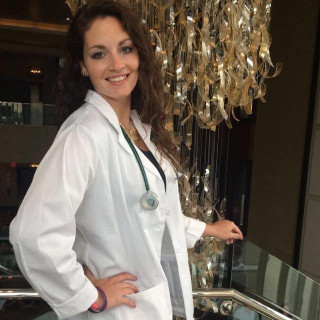I had friends who told me the day I met them that they were going to be an orthopaedic surgeon, and peers who signed up to lead the peds interest group the first week of medical school, never doubting the mission they’d set out to accomplish when they applied to medical school. Meanwhile, I’d kept an open mind, but perhaps too open: I seriously considered being a hospitalist while I was on internal medicine, worked at a free clinic led by a gyn-oncologist, and spent years doing research in the department of transplant surgery. By the end of my third year, it was hard to pick just one specialty when I’d enjoyed parts of so many rotations.
I’m now a general surgery resident, and despite the long hours and busy schedule, I would choose the same field all over again. It was a complex decision, and it has to be a very personal one. For all students in this position, I wanted to share some insight on things that helped me decide at the time:
1) Think Critically About What “Lifestyle” Means For You
I unfortunately knew many peers who shared my excitement about surgery but wrote it off as a career choice “because of the lifestyle.” In reality, surgery is a vastly heterogeneous field that has no one particular lifestyle. It’s important to ask questions that add granularity and nuance to topics that may give students pause about a field they are otherwise excited about. A vascular surgeon who takes call at a Level I trauma center may often be up operating in the middle of the night on very sick patients, living “the lifestyle” that some medical students are apprehensive of. However, a vascular surgeon who works as a vein specialist may have a busy outpatient surgical practice but spend much less time awake in the middle of the night. There are numerous different practice types that students aren’t always exposed to on core third-year rotations and one may be surprised to learn that the field they love may not be as impossible as it first seemed.
The same is true for the residency “lifestyle.” Particularly for female peers, family planning has been something that gives people reservations about the length and intensity of various residency training pathways. A friend in medical school told me she simply wouldn’t pursue surgery because she wanted to be a mom, as if the two were mutually exclusive. It’s true that balancing a busy career and the demands of a newborn can be very difficult, and putting off childbearing during a longer residency can be risky when nearly 1 in 4 female physicians struggle with infertility. However, my surgical program had four categorical residents give birth just within this past academic year, and more than 80% of the graduating chief class had kids during residency. While this may not often be the case, the reality is that residency isn’t a set of years to “get through.” They’re tough but formative years for our careers as physicians, but they’re also another 3-7 years of our lives in our late 20s and early 30s. Life continues during residency, and it’s important for fourth-year medical students to assess training programs with a critical eye and evaluate whether the culture will be one that can support them as a human being as well as a physician-in-training. My colleagues who are parents are no less dedicated to their education and their patients than their peers who don’t have children, and it’s important for residents and faculty to advocate for cultural and structural change from within to allow all students an opportunity to join each profession.
2) Remember That Medicine Evolves
“I’ve seen cardiothoracic surgery go from ‘a dying field’ to ‘the future of medicine’ and back several times throughout my career,” a mentor who matched into surgery in 1964 mused one day. I’d voiced a concern after my attending had told me that he’d spent months perfecting the highly-selective vagotomy in the early 90s, only to watch proton pump inhibitors come to market and render the procedure nearly-obsolete.
“Are medical advances going to make surgery disappear as a field?” I’d asked.
His response about cardiothoracic surgery was meant to serve as an illustration of why this wasn’t something I needed to worry about. This interaction was a reminder that it’s helpful to evaluate the trajectory of the field as a whole, and gaining perspectives from faculty of various ages like this can be helpful in making decisions. For example, I’d loved open vascular cases during my vascular rotation intern year, but appreciated candid responses from fellows who emphasized that endovascular work was becoming more and more prominent, and would likely take over much of the open work that was being done today.
While these predictions and perspectives can be very helpful, as we’ve all seen during the past few years, medicine is a rapidly changing field that has to adapt to the needs of the population it serves. There are now experts in COVID-19 whose career is based on a disease that didn’t exist when they were in medical school. There were doctors who told patients they had months to live with HIV-AIDs in 1985, who now run an HIV clinic for patients who have lived on HAART therapy for decades. No one can definitively predict what will arise during their tenure as a physician. An open mind and the ability to keep growing and changing with emerging data and technology will be as important to one’s future practice as the details of how a specialty is practiced today.
3) Consider What Makes Your Career Meaningful
Being told to simply “pick the specialty you love” may sound like an easy solution, but for students who may feel like they like a number of specialties, it can be confusing. This is where I found it was useful to spend a lot of time identifying what it was about each field that drew me in and to ask myself questions about what I wanted my practice to look like. A lot of physicians I talked to suggested common branch points: Do you want to take care of critically-ill patients who legitimately might die while you’re taking care of them? Or do you want to work with patients in a less acute setting? Inpatient or outpatient? Adults, kids, or both? Long-term care of a patient you have a relationship with versus meeting new patients every day? Do you want to do procedures?
Beyond these pragmatic questions, I found it was most helpful to reflect on these ideas in the context of something deeper. I reread the personal statement I wrote when I applied to medical school. I talked about wanting to be there for patients on the worst day of their life and making a positive difference in that experience. And in general surgery, that’s a situation that’s hard to avoid. We take care of trauma patients who have been in terrible accidents, people with new cancer diagnoses, critical care patients in the ICU, etc. And I like to think we do make a meaningful difference — one of my favorite moments is dropping a patient off in SICU after an emergent and frenzied trip to the OR and telling the staff and the family that the case had gone well and we were cautiously optimistic. It’s rewarding to see an appy or lap chole patient wake up in PACU to find that their terrible pain is gone (and replaced with manageable incisional pain), or to tell someone that they actually won’t need surgery after all.
Everyone has a passion or a goal or interest that drew them to medicine in the first place. There are countless ways to make a difference that are meaningful to you and, more importantly, to the patient and their family. There is going to be something about each specialty that is deeply rewarding to each future physician in different ways, and identifying this is an important step.
4) Understand There May Be More Than One Right Answer
There is likely going to be more than one thing that provides meaning in each student’s work, and it’s also likely that this can be achieved from a variety of avenues. For example, someone can be a hand surgeon via orthopaedic surgery, via integrated plastics, or via a plastics fellowship out of general surgery. The options are very broad, and for those of us who are torn because we can’t decide what to give up, the reality is that we may have been happy in any number of fields as long as we can find something fulfilling in the work.
If students are undecided late into their fourth year, I’ve known a number of people who applied to more than one specialty. This carries some particular pros and cons that one may want to discuss in depth with an advisor, but the interview trail does provide great opportunities to learn and have conversations with people in the field that may offer some insight.
Absolute worst case scenario: you've matched into something and now it isn’t what you want? It’s never too late to make a change, and there are numerous residents who have matched successfully into another field after leaving their original specialty. It may seem daunting to repeat intern year, but one year is a small price for happier decades of future practice. There are ultimately multiple paths and strategies to create a practice that works best for you that transcend the bounds of one particular specialty. Chances are your insight and intuition have led you this far for a reason, and if you apply to a field that brings you joy and meaning, everything else will fall into place.
What other elements do you think are important to choosing a specialty? Share in the comments.
Colleen is currently a general surgery resident in Salt Lake City, UT. She hopes to pursue a career in academic surgery where she can continue teaching, writing, and research in addition to clinical practice. She has an MD/MPH from Tulane University in New Orleans, LA, and hopes to continue to use public health principles to improve surgical outcomes for patients. In her very extensive free time as a surgery resident, Colleen enjoys art, skiing and snowboarding, hiking, writing, dancing, and practicing yoga. Colleen is a 2021–2022 Doximity Op-Med Fellow.
Image by GoodStudio / Shutterstock







